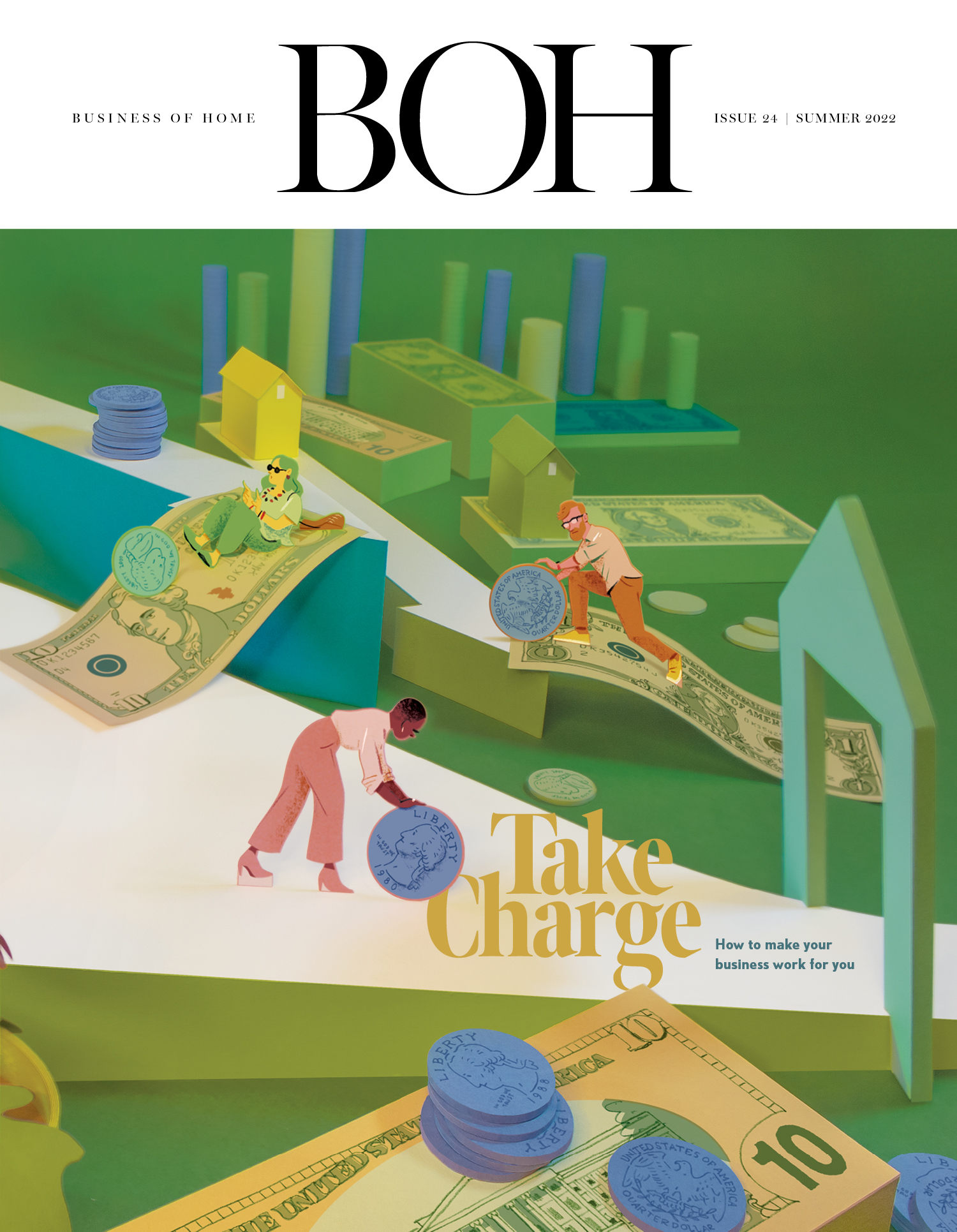For years, Skip Sroka was leaving money on the table. “I wasn’t charging for installs, only for product delivery,” says the Washington, D.C.–based designer. “There were multiple areas I was failing to charge, yet providing great value to my clients.” It wasn’t a flash of inspiration or a seminar that led to Sroka changing his strategy—it was an open discussion with fellow designers about pricing practices in Design Trust Limited, a national peer group for designers.
Even in normal times, groups—whether large and formalized or just a running text with a few friends—have been an essential way for designers to navigate best practices and get the most out of their businesses. In a time of unprecedented uncertainty, they’re more important than ever.
Founded in 2015, Design Trust Limited is made up of 24 designers from across the country, all of whom own and operate their own firms. The peer-to-peer organization aims to provide members with a place to speak transparently about specific business concerns. “I have never been able to share and learn from others the way I do in this group,” says Sroka, who serves as the president. “There is nothing we don’t go over confidentially.”
Currently, DTL is keeping track of vendors that are honoring orders and those who are on shaky ground. “My biggest angst, aside from keeping my team employed, is the supply chain,” says Debbie Baxter, a designer in San Antonio. “I have orders to place for product and deposits from clients and I’ve been struggling with how to place them safely under the current economic conditions.” Baxter says that the information sharing going on in the group is taking some of the pressure off those decisions and giving her confidence in the orders she does move ahead with.
Last month, when Congress passed the CARES (Coronavirus Aid, Relief, and Economic Security) Act, members of the DTL were quick to decipher the requirements necessary to qualify for the Small Business Administration’s Paycheck Protection Program and share them with the group. “There was so much early information coming out from the government about the new loan program requirements that didn’t match what the SBA actually needed,” says Douglas Greiwe, a designer in Cincinnati. “Our group spent the time to drill down and make sure none of us made any errors in our applications. You were given one opportunity to apply for these loans, so we all wanted to make the most of that and be able to benefit from them.”
Megan Gorelick, a designer based in Montchanin, Delaware, says that she even found herself educating her accountant and local banker about the intricacies of the SBA loans and Paycheck Protection Program based on information the DTL had provided.
Many DTL members are industry veterans who have weathered previous economic downturns and are able to share their advice and experience with younger members. “The more experienced designers came out of the last recession with a great deal of knowledge and hindsight that can help all of us avoid some of the minefields,” says San Diego–based designer Anita Dawson. “We have discussed how to keep our staff on in the near term, but we also talked about recognizing the signs so that we can make some hard decisions before it’s too late. We talk about cash flow and receivables, but we also are thinking collectively about the ways our industry will change and how we can be best prepared.”
Beyond providing each other with business advice, the DTL is now acting as something of a support group during this turbulent time. Every Friday afternoon, there’s an hourlong call where members can voice their concerns and lend an ear to one another. “Having people to talk with who understand what we are all going through gives us all comfort,” says Greiwe. “There is strength in not being alone, and it gives us all a way to be able to go back to our teams and clients with a positive message and to keep moving forward.”




























